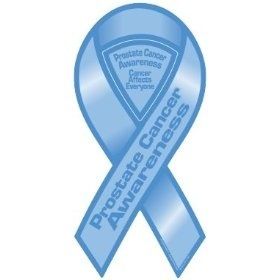Breast Cancer ribbons aren’t the only way to bring attention to a women’s health issues–so is men’s facial hair!
Movember is an annual, month-long event involving the growing of a moustache during the month of November for raise awareness of Men’s health issues, such as prostate cancer and other men’s cancers; and associated charities. The Movember Foundation runs the charity event, housed at Movember.com. The goal of Movember is to “change the face of men’s health.”
By encouraging men to get involved, Movember aims to increase early cancer detection, diagnosis and effective treatments, and ultimately reduce the number of preventable deaths. Besides getting an annual check-up, the Movember Foundation encourages men to be aware of any family history of cancer, and to adopt a healthier lifestyle since 2004.
1 in 6 men will be diagnosed with prostate cancer in their lifetime. Nearly, 240,000 new cases of prostate cancer were diagnosed in 2012; approximately 28,000 men will die from the disease. The African American males need to get serious about prostate cancer. The prostate cancer statistics are especially alarming for African American males. African American men are more likely to be diagnosed with prostate cancer and to die from prostate cancer than Caucasian men. The causes of higher rates of prostate cancer among African American males are largely unknown. Some studies found that even when income and education are controlled for African Americans, they still face higher rates of prostate cancer in the U. S., rates are 60% higher.
Prostate cancer is a form of cancer that develops in the prostate, a very small gland in the male reproductive system, that is the size of a walnut. How does a gland so small cause such problems? Most prostate cancers are slow growing, however, there are cases of aggressive prostate cancers. The cancer cells may metastasize (spread) from the prostate to other parts of the body, particularly the bones and nymph nodes. Prostate may cause pain, difficulty in urinating, problems during sexual intercourse or erectile dysfunction. Other symptoms can potentially develop during later stages of the disease, if detected early, one can survive the statistics.
Risk Factors to Consider:
Family History – prostate cancer seems to run in some families
Age – prostate cancer is very rare in men younger than 40, but the chance of having pros tae cancer rises rapidly after age 50. Almost 2 out of 3 prostate cancers are found in men over the age of 65. African American men should be have annual prostate check-up as early as age 40 if your have a family history of prostate cancer.
Race/Ethnicity – Prostate cancer occurs more often in African American men than in men of other races.
Genes – Scientists have found several inherited gene changes that seem to raise prostate cancer risk, but they probably account for only a small amount of cases overall.
Diet – Men who eat a lot of red meat or high-fat dairy products appear to have a slightly higher chance of getting prostate cancer. These men also tend to eat fewer fruits and vegetables. A healthy prostate diet should include: tomatoes, broccoli, soy, flax, pomegranate and green tea.
Obesity – Most studies have not found that being obese (very overweight) is linked with a higher risk of getting prostate cancer overall.
Smoking – Most studies have not found a link between smoking and the risk of development of prostate cancer.
Exercise – Exercising for at least 30 minutes, at least three times a week is essential for maintaining a healthy body, and may reduce the odd of developing prostate cancer.
Inflammation of the prostate – Some studies have suggested that prostatitis (inflammation of the prostate gland) may be linked to an increased risk of prostate cancer, but other studies have not found such a link. Inflammation is often seen in samples of prostate cancer tissue that also contain cancer.
Sexually transmitted infections – Researchers have looked to see if sexually transmitted infections (like gonorrhea or chlamydia) might increase the risk of prostate cancer, possibly by leading to inflammation of the prostate. So far, studies have not agreed, and no firm conclusions have been reached.
Vasetomy – Some earlier studies suggested that men who have had a vasectomy – especially those younger than 35 at the time of the procedure – may have a slightly increased risk for prostate cancer. But most recent studies have not found any increased risk among men who have had this operation.
Prostate Cancer Outreach Programs/ Initiatives:
- Stand Up for Cancer- Prostate Cancer Foundation: SU2C.org
- Cancer.org: http://www.cancer.org/treatment/index
- PHEN: The Prostate Health Education Network, Father’s Day Outreach
- ZERO Prostate Cancer: zerocancer.org
- Urology Care Foundation; www.urologyhealth.org
- The BarberShop Initiative: www.prostate-online.com/barber.html
- Congressional Black Caucus Foundation’s Prostate Cancer Research Initiative: wwwcbcfinc.org/prostate-cancer-initiatve.html
The real killer, is fear. Fear of the unknown. What might or could be? Most men don’t want to talk about their private parts! Let’s help protect those men we love by ensuring they get their annual prostate exam.

